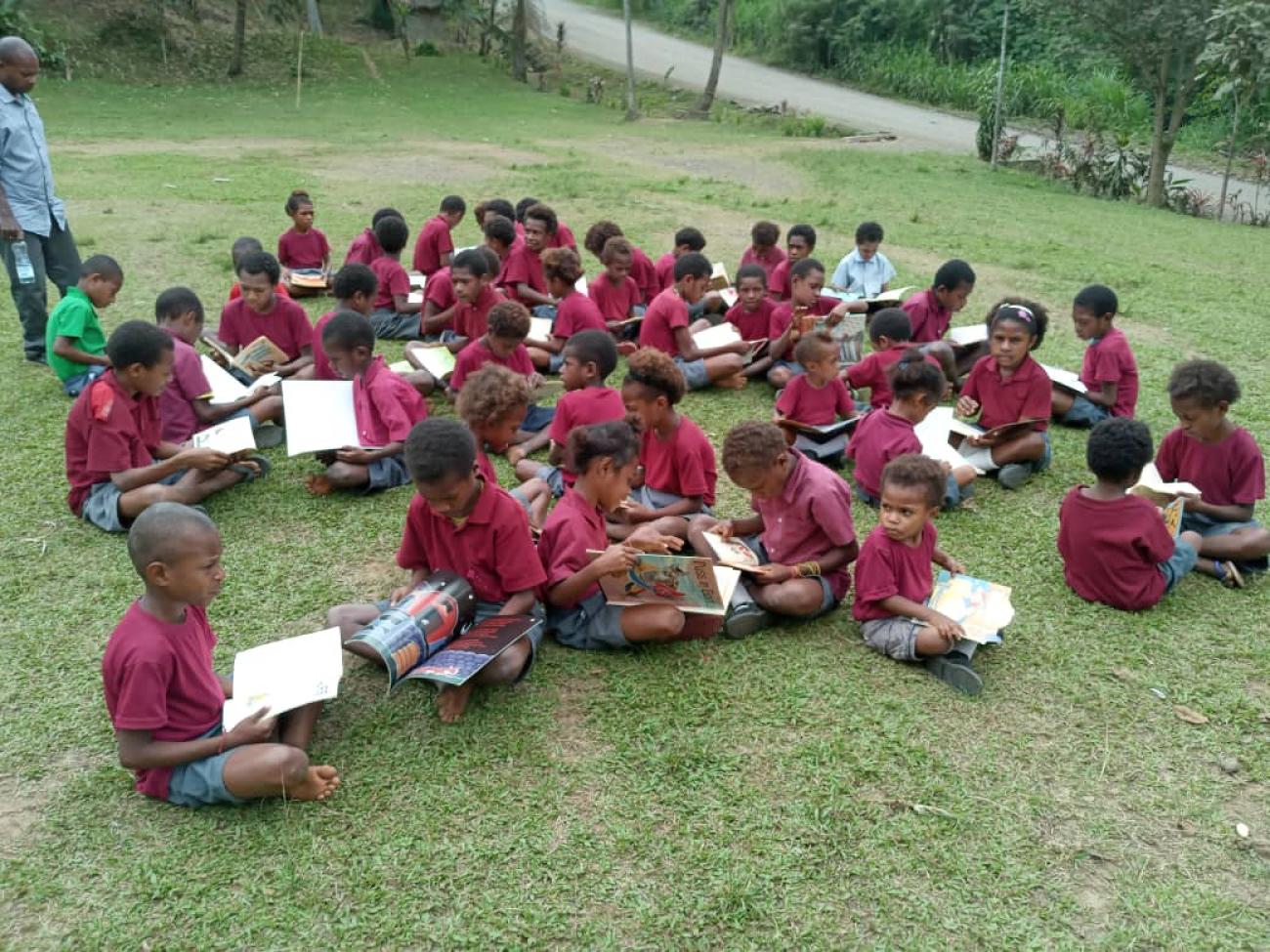Learning Interrupted: Community Supports Early Childhood Education to Recover Stronger from COVID-19

Early Education teacher Bonita Amepou shares how COVID-19 affected her and her mother's phonics program, and how Madang's community supports local students.
Geographic challenges, financial limitations and a lack of facilities have kept access to early childhood education from many communities in Papua New Guinea. Now, as we enter the Niupela Pasin, early childhood educator and teacher trainer Bonita Amepou shares how COVID affected her students and how we can make early childhood education accessible to more children across PNG.
Early childhood education prepares children for a lifetime of learning. “It allows for children to develop their personal, social and emotional behaviour amongst other children,” Bonita explains. “It also prepares Early learners to enter into the main school system with the knowledge and understanding of school routines and basic literacy and numeracy.”
Impact of COVID-19
Access to early learning is one of many inequalities exacerbated by the COVID-19 pandemic. School systems around the world turned to remote learning to control the spread of the virus, a solution that assumed students had access to a reliable internet connection and a computer. This assumption, while fair for most students in the developed world, disadvantaged students in regions with unreliable or expensive internet and who don’t have access to computers at home.
For early childhood educators, remote learning is practically impossible as they rely on interaction. “COVID has affected my family's small school operations,” shares Bonita. “We had to close for indefinite periods and had most of our students withdraw from school for precautionary measures.”
“Even the Jolly Phonics trainings that I do around the country had to be put on hold,” she recalls. “I did not have funds and travelling was also restricted which made difficult my visits to teachers and the Jolly reading centers that we were engaged with.”
At the university level, delaying study for a semester is frustrating and, logistically, very difficult. For an infant, delaying phonics trainings for six months can amount to a significant difference in linguistic and cognitive development compared to those with access to these trainings. Similarly, delaying basic numeracy and literacy for six months can impact a child’s first school years.
Towards Greater Access for Early Education
During the 50s and 60s, missionary groups had introduced the concept of early education. Bonita explains that her parents and their peers greatly benefitted from these programs. However, as missionary activity fell away, early childhood education programs were only offered in private institutions.
As we adapt to our Niupela Pasin, many children in Papua New Guinea do not have access to early childhood education. Bonita offers several reasons for this. The first, geography, is a challenge shared with health professionals and other teachers.
In Madang, children can walk up to two hours to get to Nugu Early Learning Jolly Phonics Centre. “There are no straight roads,” says Bonita. “There are a lot of mountains and rivers to cross before getting here. Most children walk to school between 5:30-6:00 am to arrive at school at 8am.”
Finance is also a challenge. Nugu Early Learning Jolly Phonics Centre relied on community fundraising to buy classroom materials. The community support for the centre demonstrates how the community values this program. In addition to providing facilities, training new and current teachers to deliver early childhood and phonics education can help to make this early learning more accessible to remote areas.
Bonita’s solution to making early childhood education accessible is “to engage, train and support community volunteers to establish and centres in each community”. She says “all communities should have early childhood centres that are safe and nearby.”
As a teacher trainer, working alongside her mother to make early education accessible for her community, Bonita is passionate about making sure no child is left behind. “The part I love best about my job is providing Jolly Phonics training as a fundamental program for Early literacy in the Early Childhood Development Education Program,” she says. “The most satisfying experiences are when volunteers, teachers, parents and children share and demonstrate how the program has helped their oral, reading and written English.”
“True joy is experiencing children who relate to English as a third language. When they speak and understand English and start reading.”
SDG 4: Quality Education
One of the targets of Sustainable Development Goal 4 is to ensure that all girls and boys have access to quality early childhood development, care and preprimary education so that they are ready for primary education. The UN aims to support governments achieve this by 2030.

